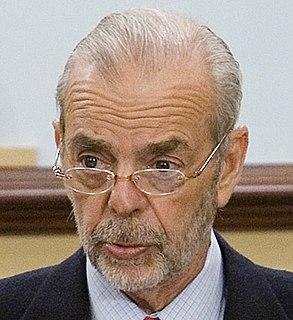A Quote by Brian Houston
Leaders goal: Understand the power of serving a leader further down the road than you because leadership is contagious.
Quote Topics
Related Quotes
As we started working with leaders, providing them with assessment feedback, noticing the impact it was having on them, and their teams, a real story unfolded, and the book All the Leader You Can Be became what it is now - a guide to leaders who want to understand their strengths, and also appreciate how to enhance their leadership.
Few things kill likeability as quickly as arrogance. Likable leaders don't act as though they're better than you because they don't think that they're better than you. Rather than being a source of prestige, they see their leadership position as bringing them additional accountability for serving those who follow them.
As a servant leader the way you serve the vision is by developing people so that they can work on that vision even when you're not around. The ultimate sin of an effective servant leader is what happens when you are not there. That was the power of Jesus' leadership-the leaders He trained went on to change the world when He was no longer with them in bodily form.
Not many of us will be leaders; and even those who are leaders must also be followers much of the time. This is the crucial role. Followers judge leaders. Only if the leaders pass that test do they have any impact. The potential followers, if their judgment is poor, have judged themselves. If the leader takes his or her followers to the goal, to great achievements, it is because the followers were capable of that kind of response.
Certainly polling is a tool for leadership. It's not a program for leadership. And you can abuse a tool. You can overuse it. A leader who looks to the latest poll finding and says, "Well that's what I should do", that's not a very good leader. I mean that's someone who is not taking this poll and saying, "Well what am I gonna have to do to get public acceptance of my policies?" It's someone who is interested in their own election or re-election, and their own popularity rather than genuinely serving the public interest.
Whether it comes from a despotic sovereign or an elected president, from a murderous general or a beloved leader, I see power as an inhuman and hateful phenomen. To the same degree that I do not understand power, I do understand those who oppose power, who criticize power, who contest power, especially those who rebel against power imposed by brutality.
Christianity enhanced the notion of political and social accountability by providing a new model: that of servant leadership. In ancient Greece and Rome no one would have dreamed of considering political leaders anyone's servants. The job of the leader was to lead. But Christ invented the notion that the way to lead is by serving the needs of others, especially those who are the most needy.
To my mind, you cannot speak about the need for leadership within our communities without being prepared to take on responsibility yourself. It's not enough to point the finger at those who have let us down and to expect others to come forward and fix our problems. Nor can anyone afford to call themselves a leader unless they truly have the interests of our community at heart. Too many people like to think they are leaders and too many are identified by the media as leaders who are not really leaders at all.

































